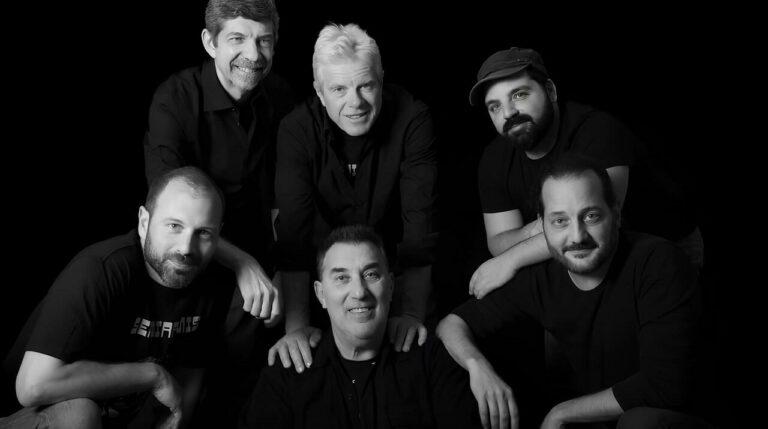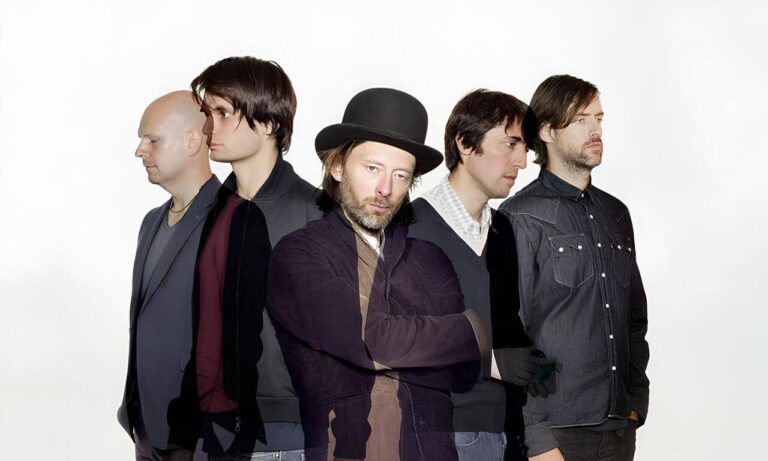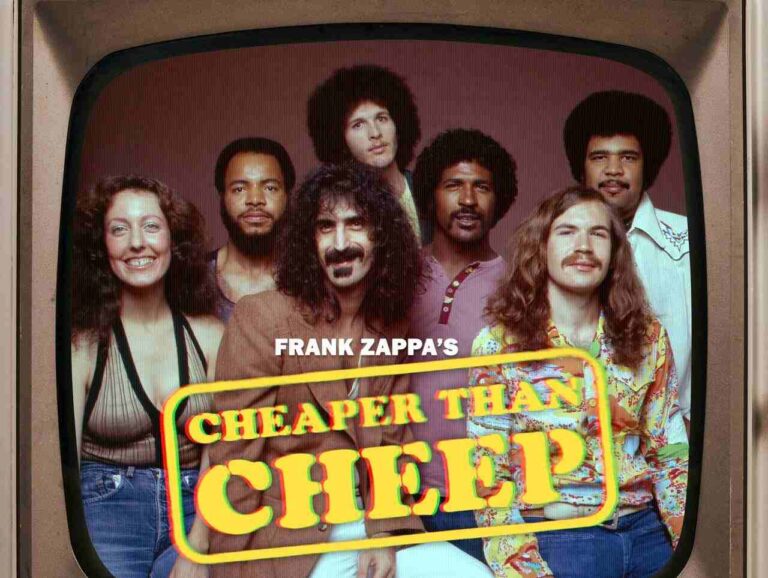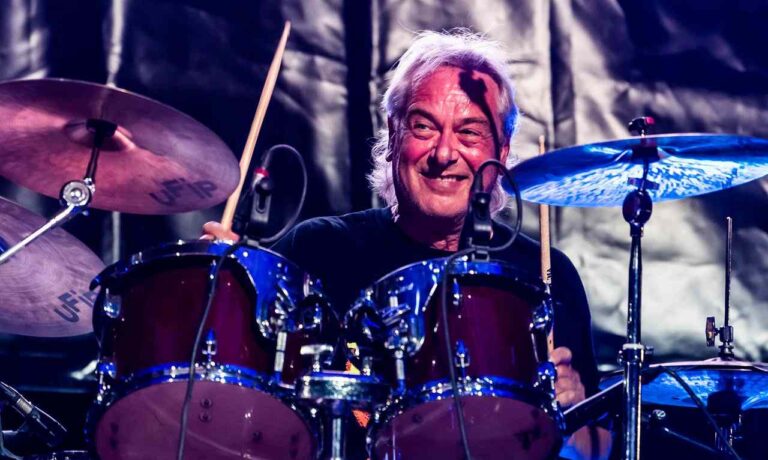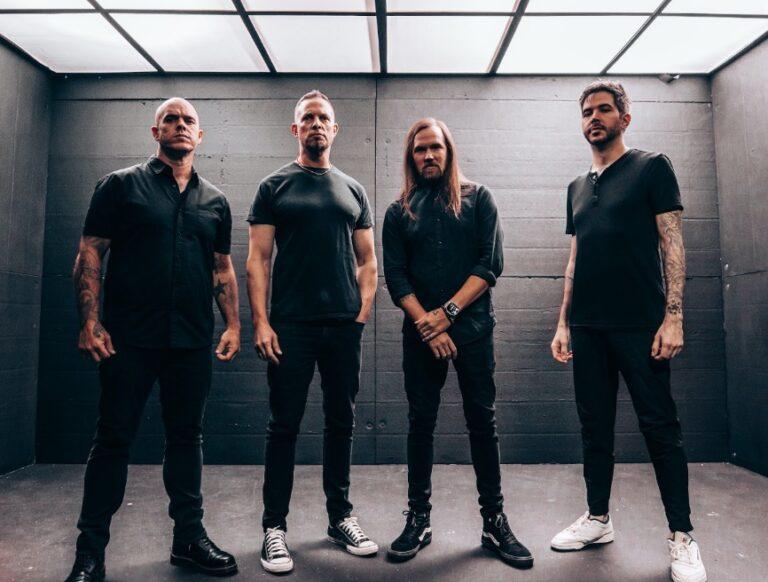Intervista a Garry ‘Moonboot” Masters: i dettagli sul suo album Bone Idol
Parliamo di Garry Moonboot Masters e del suo album Bone Idol. Ciao Garry, grazie per esserti fermato qui con noi per un’intervista riguardo il tuo album Bone Idol. Sarò molto diretto. “Io amo questo album”. Per me, musicalmente, è come farmi una corsa sulla macchina del tempo e tornare negli anni ’60. Ci sento reminiscenze di Blue Cheer, Cream e Jimi Hendrix Experience e un certo numero di altri power trio, su Bone Idol.
E’ chitarra, basso e batteria che costruiscono un’eccellente fondamenta per una ricca collezione di liriche che si mescolano insieme in modo compatto. Sebbene alcuni dicano che “il rock è morto”, lasciamo che il mondo sappia che invece il rock è vivo e sta bene. Bone Idol ce lo fa ricordare.
Intervista a Garry “Moonboot” Masters
Garry Moonboot MastersIntervista a Garry “Moonboot” Masters
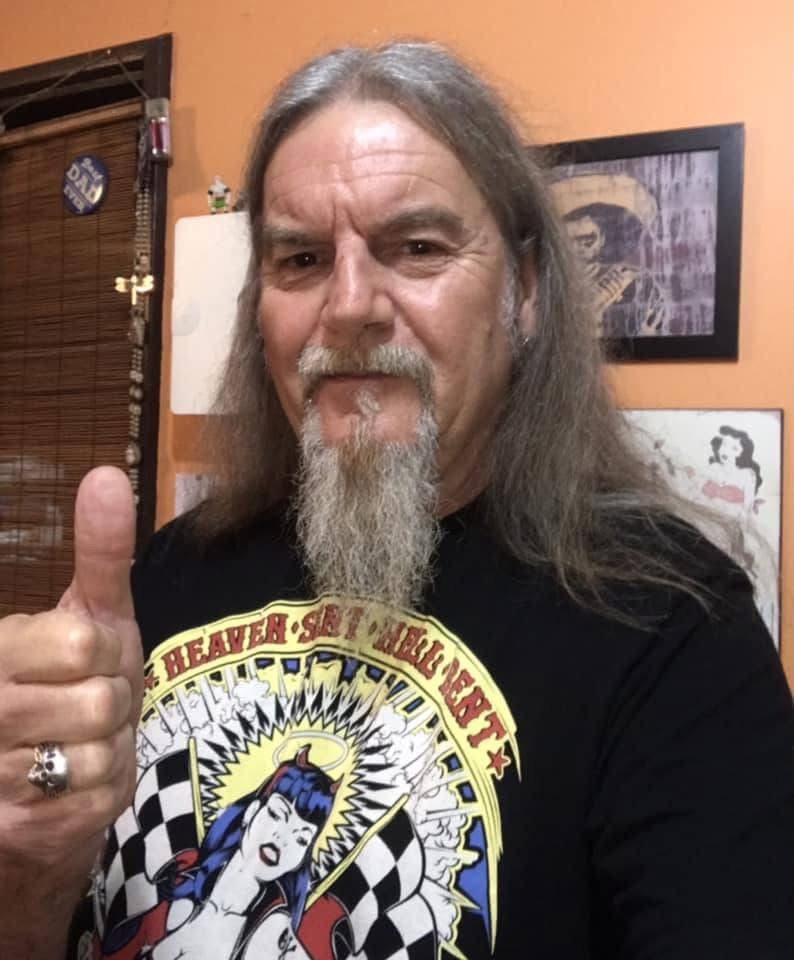
Garry, vorrei chiederti alcune cose riguardo te stesso e l’album Bone Idol. Giusto per familiarizzare con i lettori di BACKdigit.com, dove sei nato e dove risiedi adesso?
Ciao Mark, grazie per il tuo interesse e per il tuo apprezzamento nei confronti di Bone Idol…
Io sono nato in una zona chiamata Acton a Londra, distante una corsa di bus dalla stazione Central London nel periodo in cui quello era il posto in cui stare. Negli anni ’80 mi sono trasferito in una cittadina chiamata Bracknell nel Berkshire (vicino Windsor). Da li è partita The Magic Mushroom Band, Astralasia, Moonboot Oz. Nel 2002 sono andato a vivere in Australia per spassarmela in un posto dal clima più tiepido…
Garry Moonboot Masters
Garry e la sua storia musicale
Il tuo percorso musicale include l’aver co-fondato The Magic Mushroom Band, Astralasia, Moonboot Oz e aver inciso i tuoi album solisti, ‘Elecktrified Moonboot’ e Bone Idol. Potresti darci un breve riepilogo della tua carriera musicale?
Mentre vivevo ancora a Londra, a parte frequentare molti show e festival, ero impegnato nel mettere insieme la mia carriera musicale. Cominciavo a fare delle jam con i miei amici dell’adolescenza. La mia prima “vera” band si chiamava Speed Machine che avevo formato con il mio migliore amico, il bassista Steve Redman. Lui aveva un vibe heavy e veloce alla MC5/Motorhead/Pink Fairies
Il punk aveva sollevato la sua terribile (ma necessaria) testa e noi avevamo un sacco di energia tipica dei teenager da bruciare (sia naturale che accresciuta).
Dopo che la prima incarnazione di The Magic Mushroom Band si formò, prendemmo con noi il batterista degli Speed Machine. Il bassista era un tizio chiamato Scruff. Lo avevamo incontrato ad uno spettacolo dei Motorhead al The Roundhouse (quello in cui avevamo realizzato il live album What’s Wordsworth?). Più tardi aggiungemmo un suonatore di synth chiamato Thamby che era un grandissimo fan dei Gong. Suonammo una serie di concerti per beneficienza e di festival nei dintorni di Londra. Ma dopo un po’ il bassista e il batterista persero interesse. Lasciarono la band per unirsi ad una band ska che in quel periodo stava andando alla grande.
The YOU Band e il sound alla Gong
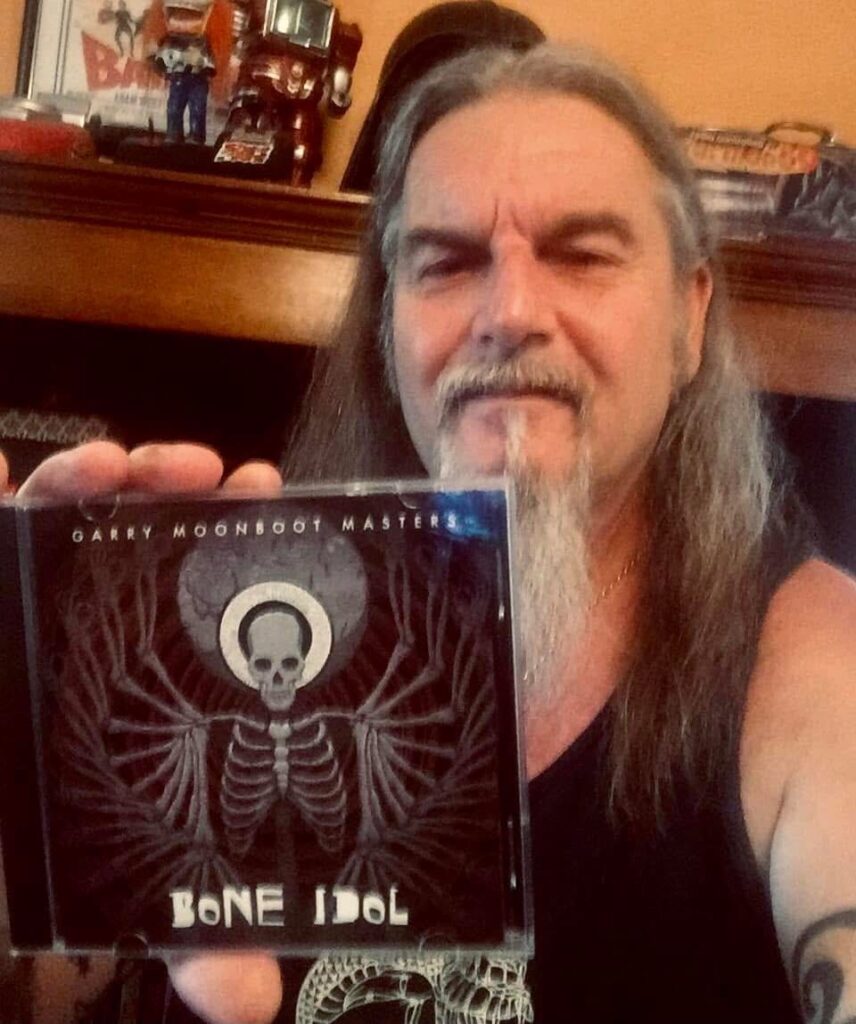
Successivamente Thamby ed io formammo un duo di soli synth e chitarra. Dopo aver suonato per un po’ in questo modo decidemmo di espanderci e di formare The YOU Band, con l’obiettivo di catturale lo stesso vibe dell’album dei Gong YOU. Entrammo in contatto con il vecchio batterista di Thamby chiamato Alan Hitt e poi mettemmo un annuncio su un giornale locale per bassisti. Lui ci presentò a Wayne Twining (dei Blacknell, da li la futura connessione). Facemmo delle prove di grande successo e continuammo a suonare alcuni show, che culminarono in una performance nel 1980 al festival di Stonehenge che fu un successo strepitoso.
Garry Moonboot Masters
Nascono gli Ali Katt & his Baghdad Boogie Band
Come arrivarono gli anni ’80, Thamby decise di voler andare in una direzione differente. Così ci sbandammo ed io presi a frequentare un altro suonatore di synth che si chiamava Adrian. Anche con lui formammo un duo di synth/chitarra per un po’. Ma poi ci espandemmo fino a divenire una band completa a cui diedi il nome di Ali Katt & his Baghdad Boogie Band (ma non c’era boogie era soltanto un gioco di parole). Ci tenemmo lo stile alla Gong ma con un feel un tantino più heavy.
Il bassista Wayne e il batterista Alan stettero di nuovo insieme a me per un po’ . Ma alla fine Alan fu sostituito da Nigel Tubb (che più tardi andò a suonare con Mournblade). Quindi venne il mio vecchio amico Steve degli Speed Machine al basso. Lui più tardi fu sostituito da un tipo chiamato Ormond (che aveva suonato nella band reggae Misty in Roots) a sua volta rimpiazzato da un musicista di nome Clive. Avevamo cambiato il nome in Psychic Attack e le nostre jam erano diventate più heavy.
Garry Moonboot Masters
Il ritorno di The Magic Mushroom Band
A questo punto era il 1982 e la frustrazione avanzava nella band che intanto tentava di avere degli ingaggi per farsi notare. Improvvisamente, all’improvviso, il mio vecchio amico il bassista Wayne si mise in contatto con me. Mi chiese se mi sarebbe piaciuto venire a Blacknell per una jam con il suo fratello gemello Craig alla chitarra e il batterista Jim Lacey. Ci andai giusto per divertimento e ci piazzammo in una stanza sopra al pub. La jam fu grandiosa, ci trovammo a nostro agio immediatamente tanto che decidemmo di ritrovarci. La volta successiva che ci esibimmo insieme fu in un pianterreno all’Arts Centre, direttamente davanti al Castello di Windsor e di nuovo la nostra performance fu soddisfacente.
Quando avemmo finito un tizio venne a vederci, era un promoter dell’Arts Centre che ci disse che gli piaceva quello che stavamo facendo e ci chiese se avremmo voluto tenere un concerto nel palco centrale. Noi accettammo immediatamente, decidendo di far risorgere il nome di The Magic Mushroom Band. Con l’aiuto di un amico che aveva uno spettacolo di luci che ormai si stava impolverando, mettemmo in piedi il nostro primo show appena un paio di settimane più tardi di fronte ad un’audience sold out. Il resto, come si dice, è storia…
I cambi di line-up
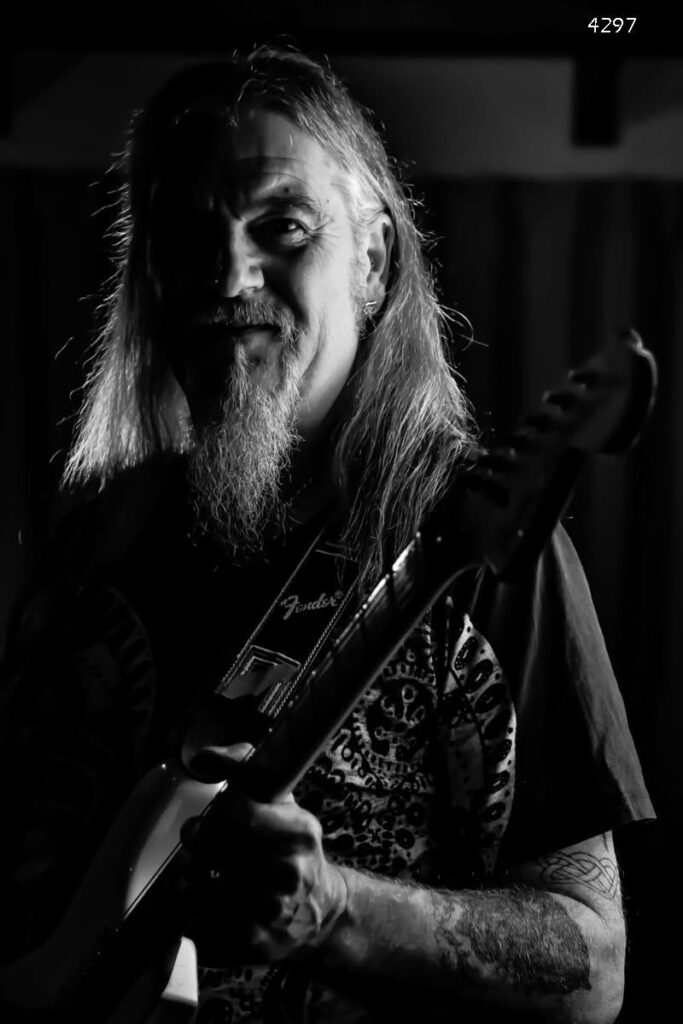
Dopo molti anni di spettacoli e di album pubblicati, il 1990 vide un cambio di line-up in The Magic Mushroom Band. Si uní al gruppo Sam Turner al violino, Kim Oz passò dal synth ad aggiungere anche le vocals. Craig aveva lasciato ed era stato rimpiazzato da Ed Genis ala chitarra slide e come produttore/ingegnere del nostro secondo e terzo album mentre Swordfish aveva sostituito Jim alla batteria. Era un enorme cambiamento ma in molti modi aveva rivitalizzato la band e ci aveva preparato per gli anni ’90. All’epoca l’Acid House era di tutti i tipi con svariati sub-generi e Swordfish iniziò ad esplorare questi percorsi. Fu allora, dopo che registrammo alcune session etho/ambient che formammo gli Astralasia.
Garry Moonboot Masters
La nascita di Moonboot Oz
Introducemmo gli Astralasia come un “offshoot” di The Magic Mushroom Band, spesso dividendo la serata. Dopo un po’ decollò e divenne un progetto a se stante con Swordfish in evidenza. Seguirono molti raves e parties ma anche release di album. Dopo un po’ di anni passati tra un band e l’altra e la messa da parte di The Magic Mushroom, decisi di allontanarmi da tutto ciò e di prendermi un break da quello che il mondo digitale era diventato.
Moonboot Oz furono fondati come una band tutta acustica, io ero alle vocals e alla chitarra. Kim Oz era alle vocals e all’armonica e non troppo tempo dopo, il membro originale dei Magic Mushroom era alle percussioni.
Fu un periodo davvero piacevole. Entravamo tutti nella stessa macchina con un minimo di equipaggiamenti e suonammo molti concerti e festival. Realizzammo anche l’EP introduttivo Organic Mushrooms e quindi un album intitolato Music for the Psychedelic Cafè. Alla fine ci espandemmo divenendo una band completa con la quale culminammo in uno show al Glastonsbuty Festival nel 1999.
Un periodo di break nel 2000
Nel 2000 dovemmo scioglierci ed io mi presi un break trascorrendo del tempo ad aiutare mia figlia Jas a mettere insieme la sua carriera di cantante solista. Registrammo un paio di demo che ebbero dei buoni consensi e facemmo alcuni show (con Kim ed io come backing vocals). Questo culminò in uno spettacolo che lei fece da sola nel 2000 al Festival Glastonbury.
Con una intera vita di esperienze e molti felici ricordi decidemmo che avevamo fatto tutto quello che potevamo in UK e che fosse tempo per scrivere un nuovo capitolo. Così emigrammo in Australia nel 2002.
Garry Moonboot Masters
Il trasferimento in Australia
Gli anni successivi li spendemmo adeguandoci all’ambiente ed esplorando questo nuovo paese e la musica fu messa un po’ da parte. Fino alla fine del 2000 quando venimmo contattati da una band locale chiamata Elwood Road che stava cercando un chitarrista e una vocalist. Erano una cosiddetta cover band ma io gli dissi che se ci fossimo uniti avremmo fatto anche del materiale originale, cosa che facemmo. Registrammo infatti un EP e un album poco tempo dopo. Era bello essere di nuovo nel mondo della musica ma c’era un vibe differente rispetto a quello a cui io ero abituato e cosi ci dividemmo.
All’epoca The Magic Mushroom Band aveva pubblicato delle re-releases ed appariva in alcuni album compilation che dimostravano che c’era ancora interesse nella storia della band. Fu li che io decisi che era tempo di scrivere un libro, un’autobiografia, che intitolai Mushrooms & Moonboots. Vendette bene e fu molto ben ricevuto da pubblico e critica.
Il primo disco solista

Nel 2013 decisi che era tempo di registrare il mio primo disco solista, Elecktrified Moonboot. Era molto entusiasmante essendo la prima volta, avevo completamente il controllo artistico. Ingaggiai un favoloso batterista, Rossco, e decisi che avrei suonato da solo tutte le parti di basso, il che fu un grande divertimento.
L’album andò molto bene, ricevette delle belle recensioni nei vari giornali e vendette anche bene. Alcune persone furono scioccate dal vibe di questo Heavy Power Trio ma quella era stata una decisione che avevo preso artisticamente. Era una sfida professionale e nello stesso tempo provava che io non cercavo affatto di suonare come The Magic Mushroom Band.
Nel 2020 cominciai a registrare il mio secondo solo album Bone Idol, ancora tenendo in piedi il Power Trio ma questa volta aggiungendo dei cori femminili (a cura di Gas e Renee). Era un qualcosa che mi era sempre piaciuto. Di nuovo, ebbi delle reazioni positive ma la pandemia da Covid stava esplodendo e quindi mi imbattei in tutti i problemi possibili nella distribuzione del disco.
Garry Moonboot Masters
Le influenze artistiche
Quale artista o musicista ti ha influenzato maggiormente, e come?
Per quanto riguarda gli artisti che mi hanno influenzato durante gli anni, devono nominare principalmente dei chitarristi, ovviamente ma non esclusivamente. Hendrix è stato e sempre sarà il mio chitarrista numero uno. Ci sono musicisti che puoi ascoltare per giorni e alla fine annoiartene ma non ti può mai accadere con Jimi. Ogni sua canzone è sempre fresca come la prima volta che l’hai ascoltata.
Lui prendeva la sua chitarra, ti portava in orbita e poi ti faceva tornare giù. Altri chitarristi che ho sempre profondamente ammirato sono stati Frank Zappa, Phil Miller, Robin Trower, Paul Rudolph, Larry Wallis, Fast Eddie Clark, Steve Hillage (agli esordi). Ma anche Eric Clapton… Sono troppi per poterli nominare tutti. Allo stesso modo e con la stessa importanza ci sono tanti songwriters che ho ammirato. Naturalmente The Beatles, The Rolling Stones, David Allen, Dave Brock, Randy California, Syd & The Floyd e tanti, altri…
Come hai trovato l’equilibrio giusto tra le tue influenze e il tuo sound unico?
Per quanto riguarda il mio sound, se parliamo di quello della chitarra, ho sempre preferito che la mia chitarra fosse selezionata con un pick up al neck quando suonavo da lead. Ti da un sound molto profondo rispetto al più sottile pick up “bridge”. Per il mio sound in generale, è un culmine tra tutta la grande musica di cui mi sono nutrito negli anni. Raramente scelgo uno stile sul quale comporre, il mio materiale mi viene fuori spontaneamente, spesso nei momenti meno opportuni!
Garry Moonboot Masters
Il processo creativo per realizzare l’album
Potresti parlarci del processo creativo usato per scrivere e registrare questo album?
Subito dopo aver completato il mio primo album solista, nuovi riffs e nuove idee per il prossimo disco cominciarono ad accumularsi e lentamente con il tempo io le sviluppai.
Una volta che fui soddisfatto dei risultati ed ebbi un numero decente di nuovi pezzi mi incontrai con il batterista Rossco.
Lavorammo insieme per trovare degli appropriati beats e alla fine registrammo una versione demo delle canzoni. Registrammo una chitarra “guida” e delle vocals, nello stesso tempo in cui registravamo le drums. Una volta che fummo soddisfatti del sound e della performance della batteria, io ri-registrai le mie parti di chitarra ritmica. Poi ci aggiunsi il basso, le parti di lead guitar e alla fine le mie lead vocali e le backing vocals delle ragazze. Kudos e Michael, produttore ed ingegnere del suono, spesero molte ore mixando e occupandosi della produzione finche tutto suonasse bene e chiaro.
I brani di Bone Idol
Qual’è il brano che preferisci all’interno dell’album e perché?
Posso dire onestamente che in Bone Idol non c’è un pezzo che preferisco in modo assoluto. Cambio idea tutte le volte, a seconda dell’umore in cui mi trovo. Qualche volta preferisco i pezzi più heavy, altre mi piacciono quelli più blues, spero che anche gli ascoltatori facciano come me.
Qual’è stata la canzone più difficile da creare e perché?
A dire il vero nessun pezzo di Bone Idol è risultato più difficile da creare rispetto ad un altro. In un paio di canzoni ho dovuto cambiare l’ottava in cui stavo cantando. Questo per via della mia voce, essendo io invecchiato, così ho dovuto optare per un modo di cantare più sommesso rispetto a qualche acuto selvaggio!
C’è un tema portante o un particolare messaggio in Bone Idol?
Gli unici temi o messaggi che puoi trovare in alcune lyrics sono più o meno sempre gli stessi che ho scritto nei miei pezzi nel tempo. Sii gentile con il nostro pianeta, fai attenzione ai mercanti di potere e non dimenticare di divertirti.
Quali sono le tue aspirazioni per Bone Idol?
Vorrei che Bone Idol fosse ricordato come un “classico” album di rock, eseguito e registrato nello spirito di un album dei grandi chitarristi che mi hanno ispirato.
Qualche consiglio per aspiranti musicisti
Qual’e il miglior consiglio che un altro musicista ti abbia mai dato riguardo il music business e quale consiglio daresti tu ad un principiante che volesse mettere in piedi una band?
Il miglior consiglio che io abbia mai ricevuto mi è venuto da Dave Brock degli Hawkwind. Ci siamo seduti ed abbiamo parlato del famoso festival gratuito Castlemorton. Nessuno di noi due ci aveva suonato, eravamo soltanto andati a vedere.
Lui mi parlò delle sue esperienze con le case discografiche e di tutte le cose cattive che possono combinare. Mi disse che la prima cosa da fare è fargli capire che sei tu quello che vende la musica e non loro. Il miglior consiglio che posso dare io? Datti da fare, il fuoco e la passione sono con te. E’ molto più facile registrare e produrre del materiale oggigiorno di quanto fosse in passato. Ma ricordati che la qualità deve superare la quantità, ogni volta…
Garry, grazie per avermi rilasciato questa intervista per BACKdigit.com e per aver condiviso il tuo tempo e le tue esperienze musicali con noi. E’ stato un piacere. Keep on Rockin’, il mondo ha bisogno di più musica come quella di Bone Idol.
Grazie a tutti coloro che sono coinvolti in questa intervista e per il tuo interesse riguardo il mio solo album Bone Idol e per la mia storia musicale.
Con tanto affetto, Garry (Moonboot).
Garry Moonboot Masters
Garry ‘Moonboot” Masters: the details on his album Bone Idol
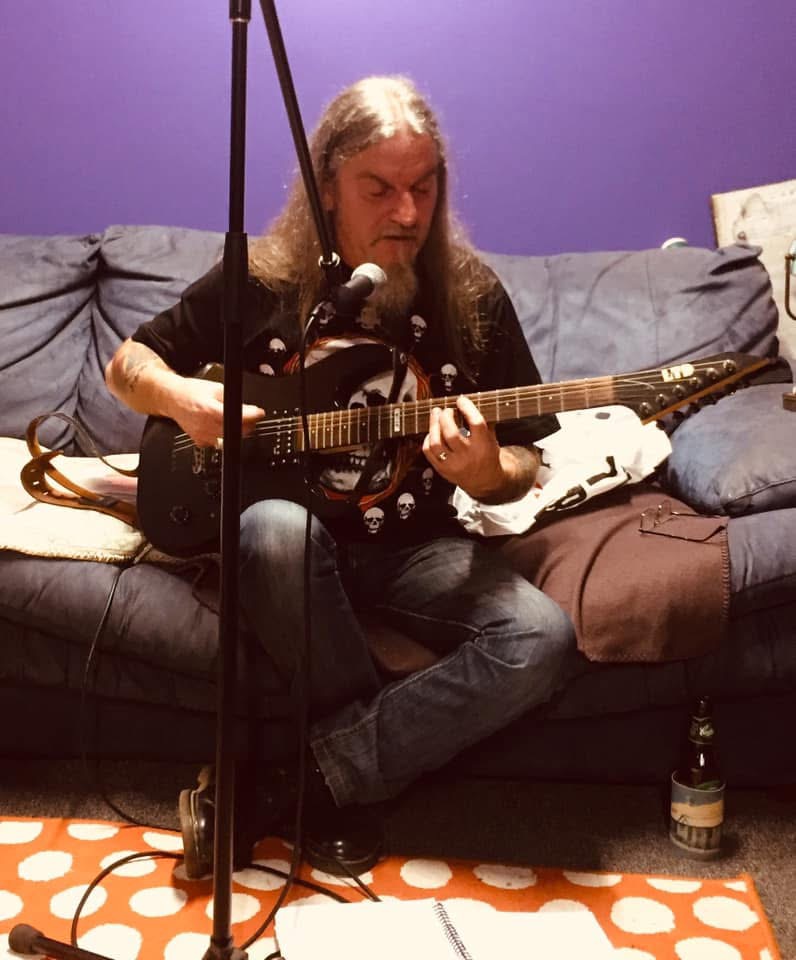
Hi Garry, thanks for stopping by for an interview for your album ‘Bone Idol’. I’ll be
right upfront. “I love the album.” For me, musically it’s like taking a ride in a Time
Machine back to the 1960’s. I hear echoes of Blue Cheer, Cream and the Jimi Hendrix
Experience and a number of other power trio’s, on ‘Bone Idol’. Its guitar,bass and
drums provide an excellent foundation for a rich tapestry of lyrics that just blend
together seamlessly. Although some say Rock is dead, let the world know Rock is
still alive and well, and ‘Bone Idol’, is a reminder of that.
Garry Moonboot Masters
The interview to Garry “Moonboot” Master
Interview to Garry “Moonboot” Masters
Garry, I wonder if it would be possible to ask you some questions about yourself and ‘Bone Idol’. Just to familiarize our readers, Garry, where were you born, and where do you reside now?
Hi Mark, thanks for your interest and appreciation of my latest solo album ‘Bone Idol’..
I was born in a town called Acton in London, a short bus ride from Central London at a time when it was the place to be! In the 1980’s I moved to a town called Bracknell in Berkshire (near Windsor) and that was where it all kicked off with The Magic Mushroom Band, Astralaisia and Moonboot Oz etc. In 2002 I relocated to Australia for further fun and frolics in a much warmer climate..
Garry’s musical history
Your musical journey included co-founding The Magic Mushroom Band, Astralasia, Moonboot Oz and your solo albums, Elecktrified Moonboot and Bone Idol. Could you give us a brief rundown of your musical career ?
While still living in London, apart from attending many shows and festivals I was busy getting my own musical career together, starting with jamming around with teenage friends.
My first ‘proper’ band was called ‘Speed Machine’ which i’d formed with my best friend, bassist Steve Redman, we had very much a MC5/Motorhead/Pink Fairies heavy speed vibe.. Punk had reared its ugly (but necessary) head and we had a lot of teenage energy to burn (both natural and enhanced)..
After that the first incarnation of The Magic Mushroom Band was formed, taking the drummer from Speed Machine with us. The bass player was a guy called Scruff who we’d met at a Motorhead gig at The Roundhouse (the one that was released as a live album ‘What’s Wordsworth?’) and later we added a synth player called Thamby who was a huge Gong freak. We played at a few benefit gigs and festivals around London, but after a while the bassist and drummer lost interest and left to join a ska band which was getting big at the time.
The YOU Band and the Gong’s style
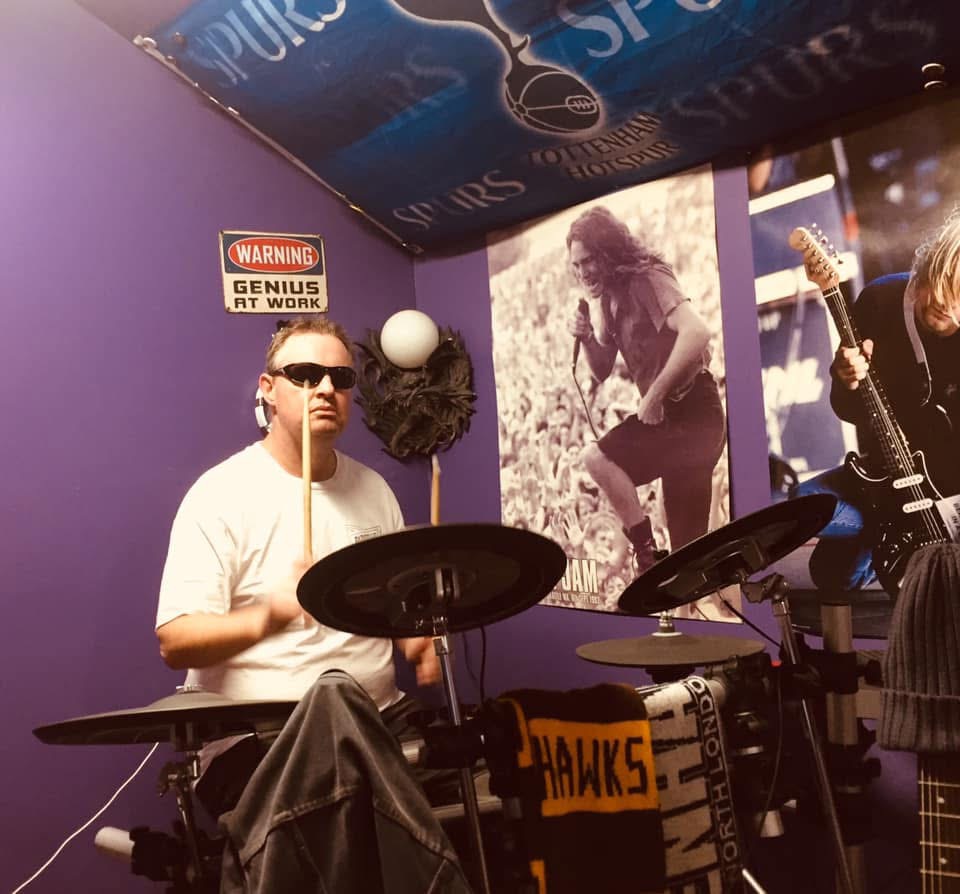
Following that, the synth player Thereby and I formed a duo of just synths and spacey guitar, after playing like that for a while we decided to expand and form The YOU Band with the aim of capturing the same vibe as the Gong album ‘YOU’. We got in touch with Thamby’s old drummer called Alan Hitt and then put an ad in the local music paper for a bassist, which introduced us to Wayne Twining (from Bracknell, hence the later connection). We had some very successful rehearsals and went on to play some shows, culminating in a performance at the 1980 Stonehenge festival which went down a storm.
Ali Katt & his Baghdad Boogie Band
As the 80’s took hold, Thamby decided he wanted to go in a different direction, so we disbanded and I then hooked up with another synth player called Adrian. We too had a little synth/guitar duo for a while but then expanded to a full band which I named ‘Ali Katt & his Baghdad Boogie Band’ (there was no boogie it was just a play on words) we still retained that Gong-esque vibe but with a bit of a heavier feel.
I had bassist Wayne and drummer Alan back on board for a while but eventually Alan was replaced by Nigel Tubb (who later went on to play with Mournblade) and then my old Speed Machine friend Steve on bass, who was then replaced by a guy called Ormond (who’d played with reggae band Misty in Roots) who then was replaced by a guy called Clive. We’d changed the name by then to Psychic Attack as the jams were getting heavier by nature.
The return of the Magic Mushroom Band
By now it’s 1982, frustration had set in as the band was struggling to get gigs/exposure. Suddenly out of the blue, my old bassist friend Wayne got in touch asking me if I’d like to come to Bracknell for a jam with his twin brother Craig on guitar and drummer Jim Lacey.
I went along just for fun and we set up in a room above a pub, the jam was great, we all gelled instantly and decided we’d like to do it again.. our next get-together was in the basement of an Arts Centre, directly opposite Windsor Castle and again we were cooking on gas, jams coming easily. When we finished a guy came in to see us, he was the promoter at the Arts Centre and said he loved what we were doing and would we like to do a gig on the main stage? We eagerly agreed, decided to resurrect The Magic Mushroom Band name and with the help of a friend who had an old psychedelic lightshow gathering dust we put on our first show just a couple of weeks later to a sold out audience. The rest is history as they say..
Line-up changes
After many years of gigging and albums released, 1990 saw The Magic Mushroom Band with a change of line-up, adding Sam Turner on violin, Kim Oz switching to synths as well as vocals, Craig had left to be replaced by Ed Genis on guitar/slide ad producer/engineer on our 2nd and 3rd albums Swordfish had replaced Jim on drums. It was a big change but in many ways it revitalised the band and prepared us for the 90’s. By then Acid House was all the rage with its various sub-genres and Swordfish began exploring those avenues. It was then, after we’d recorded some ethno/ambient sessions that he formed Astralasia.
We introduced Astralasia as an ‘offshoot’ of The Magic Mushroom Band, often sharing a bill together and after a while it took off and became a project in its own right with Swordfish at the helm. Many raves and parties ensue as well as a slew of record releases. After a few years of juggling both bands and the eventual demise of The Magic Mushroom Band, I decided to step away from it all and take a break from the digital world that it had become..
Moonboot Oz are founded
Moonboot Oz was then formed as an all-acoustic affair, featuring myself on vocals and guitar, Kim Oz on vocals and harmonium and not long after, original Magic Mushroom Band Jim on percussion. It was a thoroughly enjoyable time, we all fitted in one car with our minimal equipment and we got to play at many shows and festivals and released an introductory e.p called ‘Organic Mushrooms’ then an album called ‘Music from the Psychedelic Cafe’. Eventually we expanded to a full band which culminated in a show at the 1999 Glastonbury Festival.
A period of break in 2000
By 2000, we had disbanded and I took a break and spent some time helping my daughter Jas get her solo singing career together. We recorded a couple of demos which were well received and we did some shows (with Kim and I backing her) culminating in a show in her own right at the 2000 Glastonbury Festival.
With a lifetime of experience and many happy memories we decided that we’d done all we could in the UK and it was time for a new chapter and we emigrated to Australia in 2002.
The following years were spent getting settled and exploring our new country and music was put on the back burner for a while until late 2000’s when we’d been contacted by a local band called Elwood Road who were looking for a guitarist and vocals, they were a ‘covers’ band but I said we’d only join if we did original material, which we did. releasing an e.p and album shortly after. It felt good to be back into the music again but it was a different vibe than I was used to so eventually we parted ways.
By then The Magic Mushroom Band had had a few re-releases and were featuring on a few compilation albums which proved there was still interest in the history of the band and it was then that I decided it was time to write a book, an auto-biography, which I named ‘Mushrooms &^ Moonboots’. It sold very well and was well received..
The first solo album

In 2013 I decided it was time to record my first ever solo album ‘Elecktrified Moonboot’, it was very exciting as for the first time, I had total artistic control. I recruited an amazing drummer Rossco and decided I’d do all the bass parts myself too, which was a lot of fun. The album got very good reviews in various magazines and sold well. Some people were shocked as to the Heavy Power Trio vibe it had but that was a conscious decision on my part, it really stretched me artistically but also proved that I wasn’t just relying on trying to sound like The Magic Mushroom Band.
In 2020 I began recording my second solo album ‘Bone Idol’, still keeping that Power Trio vibe but this time adding girlie backing vocals (courtesy of Jas and Renee) which is something I’ve always enjoed (there’s some notes I just can’t reach!), Again I got very psoitive reactions to it, the only downside was that just as I released it the whole COVID thing kicked in and I had all sorts of trouble distributing it..
Garry’s artistic influences
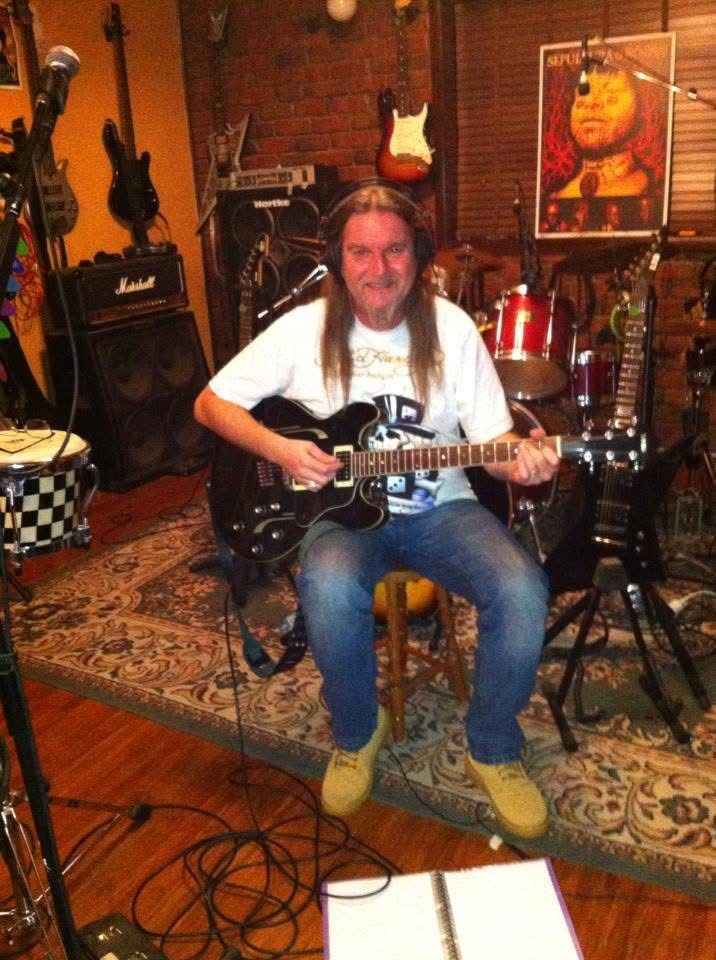
What artists or musicians have influenced you the most, and how?
As for artists who’ve influenced me over the years, I’d have to go with guitarists mainly, obviously but not exclusively.. Hendrix was, is and will always be my main man.. there are some musicians who you can play to death and eventually tire of, but never with Jimi, every song is still as fresh as the first time I heard it.. he took the guitar way, way into orbit and back again. Other guitarists who I’ve admired deeply would be Frank Zappa, Phil Miller, Robin Trower, Paul Rudolph, Larry Wallis, Fast Eddie Clark, Steve Hillage, (early) Eric Clapton.. way too many to list here actually..
Just as importantly, songwriters that I admire are , of course, The Beatles and The Stones, Daevid Allen, Dave Brock, Randy California, Syd & The Floyd and again, many more..
How do you balance your influences with your unique sound ?
As for my sound, if we’re talking guitar sound, I’ve always preferred my guitar selected to the ‘neck’ pickup when playing lead, it gives a much warmer deeper tone than the thinner ‘bridge’ pick up sound. as for my overall sound it’s a culmination of all the great music I’ve ingested over the years. I rarely choose a style to write in, this stuff just falls out of me, often at the most inopportune moments!
Garry Moonboot Masters
The creative process for writing and recording the album
Could you walk us through the creative process for writing and recording this album?
Soon after completing my first solo album, new riffs and ideas for the next one began accumulating and slowly over time I developed them. Once I was happy with the results and had a decent amount of new tunes I’d get together with Rossco the drummer, work out the starts and stops and appropriate beats and eventually we would record ‘demo’ versions of the songs.
By the time it got to recording them properly, we recorded a ‘guide’ guitar and vocals at the same time as recording the drums. Once we were happy with the sound and performance of the drums, I would re-record my rhythm guitar tracks, then add bass guitar, lead guitar in the solo parts and finally my lead vocal and the girls their backing vocals. Kudos to Michael (producer/engineer) who spent many hours with the mixing and production to get it all nice and punchy and clear..
Garry Moonboot Masters
The tracks of Bone Idol
What is your favorite song on the album and why?
I can honestly say that I have no strict favourite song on ‘Bone Idol’ as it changes all the time depending on the mood I’m in.. Sometimes I’ll blast the rockier stuff, other times I’ll chill to the bluesier stuff, hopefully listeners do the same.
What was the most challenging song to create and why?
No song on ‘Bone Idol’ was more challenging than the other really.. on a couple of the songs I had to change the octave I was singing in as my voice has got deeper as I’ve got older, so I opted for a croon as opposed to a strained screech!
Is there an overall theme or message to‘Bone Idol’?
The only theme and message to ‘Bone Idol’ can be found in some of the lyrics and they’re pretty much almost the same as I’ve ever written.. be kind to yourself and our planet, beware the power-mongers and don’t forget to have a good time..
What are your aspirations for ‘Bone Idol”?
I would just like ‘Bone Idol’ to be remembered as a ‘classic’ rock album, performed and recorded in the spirit of all great guitar albums that inspired me
Some good advice for young aspiring musicians
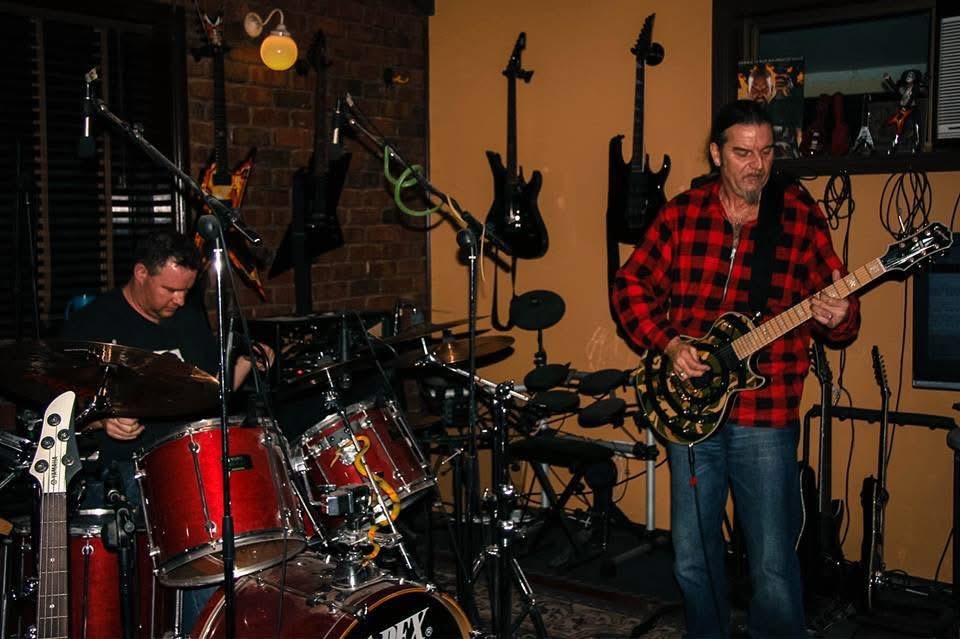
What is the best piece of advice another musician gave you on the music business and what advice would you give another musician or band just starting out?
Best piece of advice from another musician would have been from Hawkwind’s Dave Brock. We sat together and chatted at an infamouse free festival called ‘Castlemorton’. Neither of us were playing there, just hanging out. He told me all about his experience with record companies and all the nefarious things they can get up to and to just stay on top of it all and ensure that they realise that it’s you who sells the music not them. My best advice? Go for it, if that fire is within you. It’s much easier to record and release stuff now than ever before but remember, quality over quantity, every time..
Many thanks Mark to all involved with this interview and your interest in my latest solo album ‘Bone Idol’ and my musical history. Big Luv Garry (Moonboot)
Garry, thanks for agreeing to do an interview with Backdigit.com, and sharing your time and musical experiences with us. It’s been a pleasure. Keep on Rocking, the world needs more music like ‘Bone Idol’..
LEGGI ANCHE:
- Garry “Moonboot” Masters: i ricordi del fondatore di The Magic Mushroom Band della scena musicale londinese anni ’60 e ’70
- Star Sector 3 Ascensione Astronomica – Capitolo 2
- Star Sector 3 – L’Ascensione Astronomica
- “Their Satanic Majesties Request”: il contributo dei Rolling Stones alla psichedelia
- “The Velvet Underground and Nico”. Le difficoltà e le tribolazioni del capolavoro dell’Art Rock
- UFO Club: il locale che ha lanciato i Pink Floyd e ha fatto la storia della psichedelia inglese
- Il mondo di Andy Pine e la sua musica
- I Rolling Stones nel cuore della Louisiana – “Zydeco Sont Pas Salés” è un tributo al leggendario Clifton Chenier
- I Sisters of Mercy tornano in Italia: un unico, imperdibile live a Milano



